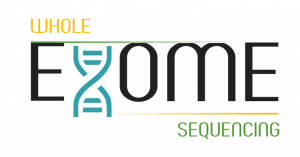Dyslexia Awareness: The letters like dancing!
Nov 07, 2017
22777 Views
A child begins its journey of learning from the mother’s womb. Instances of the child reacting to sounds and voices of the mother and father and also certain songs is common and not unheard of. Apart from the genetic make-up, other factors are crucial in the process of all- round development of the growing child. Our ancestors believed that the child’s mental and behavioural growth begins immediately after it is conceived. Hence, ‘Garbha Sanskar’ or ‘education in the womb,’ and the mother’s frame of mind during pregnancy are pivotal in developing the child’s personality.
As the child grows and interacts with the family, its fine and gross motor skills, speech, language, cognitive and behavioural development begin to take shape gradually. Once interaction with peers in school begins, the children are subject to unnecessary competition, testing them based on their writing and verbal skills. Every child is unique in his or her own way. While most are able to cope up with the demanding and mundane school life, some special children are entranced with the less monotonous things life has to offer. These children can be simple cases of distractions or special cases of learning and cognitive incapacities. Dyslexia is one of them.
What is Dyslexia?
Dyslexia is a type of learning disability that can be traced to specific regions of the brain. Our brain has areas designated to perform certain functions. With dyslexia, the brain tends to jumble up letters or words making reading, writing and pronunciations a challenge. Also known as reading disability, specific reading disability or reading disorder, dyslexic children have difficulty in identifying and relate sounds with letters or words. Thus, these children find it problematic to follow regular classroom instructions and stay focused on one particular task for a long time.
Dyslexic people have normal or, more commonly, above-average intelligence. Though it is a life-long condition, posing challenges at every stage, children can cope up with and succeed at the educational level through focused education programs.
What are the different types of dyslexia?
Dyslexia can be primary or secondary. While primary dyslexia is attributed to genetic factors and disruption in the normal functioning of the left side of the brain, secondary dyslexia is due to improper brain development in the early foetal stages. Other types of dyslexia comprise of visual dyslexia, auditory dyslexia and dysgraphia.
What are the symptoms of dyslexia?
Depending on the type of dyslexia and a wide cluster of signs and symptoms, they may be unique to every child. Dyslexia being a reading and phonics-based disability, it usually becomes apparent once the child begins school. However, some signs that can be indicative of the condition before the school-age include starting to talk later than usual, problems remembering alphabets, numbers or colours, trouble in rhyming and taking a very long time to learn new words.
Once in school, the teacher may be one of the first people to notice symptoms. School-going children exhibit signs like problems following basic classroom instructions, avoiding reading or writing activities, difficulty relating the alphabets with their respective sounds, spelling difficulties, or writing them backwards, reversing the letters that look familiar and mixing up two- and three-letter words. Adults have similar features as that of school children and may also fail to understand parts of speech like idioms or similes, have problems in summarizing large content, struggle with memorization or simple calculations.

What are the causes of dyslexia?
While the precise causes of dyslexia are not yet clear, it is known to run in families. This feature prompted experts to decipher the genes responsible for genetic predisposition. As it turns out, there are genes that can be implicated in this condition. Risk variants in the genes DCDC2 and KIAA0319 do increase the chances of dyslexia but are not the only causative factors [1]. Having these variants does not necessarily imply a dyslexic condition. Further probing into the subject can lead to a deeper insight and allow early prognosis, probably before children start school.
How is dyslexia diagnosed?
Diagnosis of dyslexia can often be difficult. Every child has its own pace of grasping and learning things. Delay in achieving certain milestones is not a cause of worry. But if there is a known family history of dyslexia or if the child is taking longer than usual to read, write and has several indications, a visit to the doctor, especially a child psychologist, would be beneficial. The doctor will ask you and your child’s concerned teacher about the warning signs observed. She may conduct a series of examinations to test the child’s reading and writing abilities. She may also test the cognitive and behavioural functions along with observation of the child’s personality. These assessments together are likely to provide a diagnosis of dyslexia.
How genomics plays a role
Diagnostic confirmation of molecular changes in genetic material (DNA, chromosomes) can be achieved through genomic tests. These tests vary in scope, ranging from analyzing a small set of genetic variations to complete chromosomal mapping techniques. Dyslexia has a strong hereditary component. The presence of genetic causes can be assessed through a holistic approach – detailed pre-test counseling (wherein an expert checks family history and inheritance patterns), targeted testing and post-test counseling, for management strategies of affected individuals and screening of blood relatives.
How is dyslexia treated?
Unfortunately, there is no cure for dyslexia. An enthusiastic team of doctors, school staff and family members are needed for successful implementation of the treatment plans. Every dyslexic child has his or her own strengths that can be enhanced and certain areas of weaknesses that need to be worked upon. Techniques and ideas that make optimum use of phonics and their relation to letters and words and those that facilitate coordinated usage of senses and actions can work efficiently. Alternative learning methods and procedures to conduct examinations and assessments can be implemented.
Outside school, children can be encouraged to take up reading and writing activities through direct- indirect activities. A combination of interactive and traditional learning that not only provide the necessary information but also boost their confidence and urge them to take up new tasks can be implemented.
Dyslexia is not a result of mental retardation, damage to the brain or due to lack of intelligence. Dyslexic children have every right to proper education as any other child. The child is aware that he or she has certain incapacities but may fail to know what they mean. Lack of self-confidence and very low self- image is common in dyslexic children. They need your love, care and support. The most important factor is the attitude of the child’s parents and siblings. Constantly reminding the child of his or her inabilities, comparisons and criticism will only demoralize the child further. Thus, apart from the numerous treatment plans, attitude matters. October was observed as Dyslexia Awareness Month. Participate in activities to spread awareness and do your bit to remove the taboo associated with it! Spend time with the children or teach them a skill. Every small contribution matters.
Parting words
Having a dyslexic child can be difficult. It requires tremendous patience and constant vigilance. They have an uncanny knack to observe and reason out things others tend to ignore. Play on their strengths and help them emerge from their weaknesses triumphant. Geniuses who defined human history like Albert Einstein and Pablo Picasso had dyslexia. You never know; your child may be a great mind in the making!

References:
- M M Nöthen et al. Genetics of dyslexia: the evolving landscape. J Med Genet. 2007 May; 44(5): 289–297.

